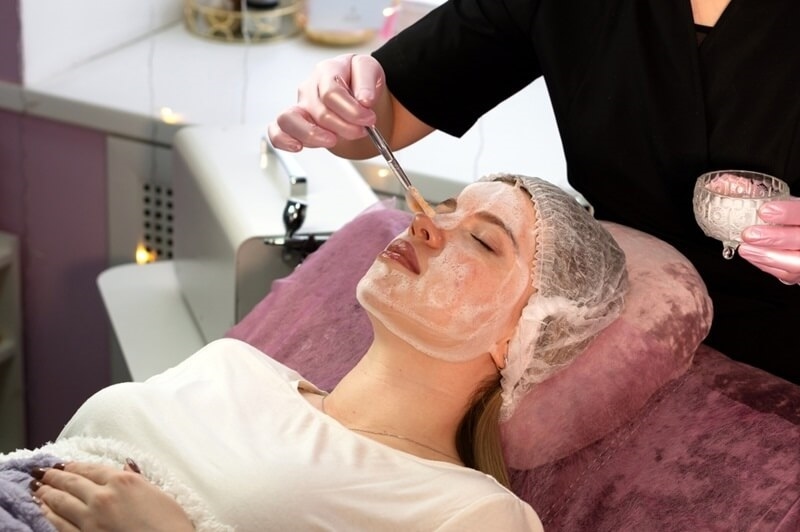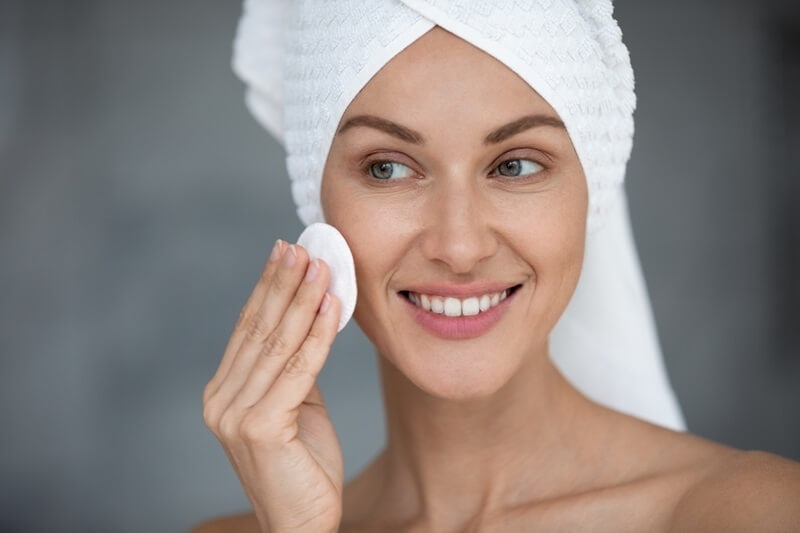
Moisturizing skin isn't all about being pretty; it’s part of it, but it plays a critical role in maintaining a healthy barrier, slowing the aging process, and avoiding inflammation. Dry areas, dullness, or tightness—whichever has been winning the battle lately, mastering the art of moisturizing around the clock can revolutionize your skincare routine. Let's look at tips for hydrating the skin that you can add to your daily regimen for a glowing, plumper face.
Your skin loses water naturally from exposure to the environment, such as sunlight, dry air, and pollution. If your skin lacks hydration, it can become dry, fatigued-looking, and more breakout-prone and irritable. A healthy hydration system for healthy skin can actually work magic on the skin, giving it better texture and fewer fine lines.
Hydrated skin reflects light better, appears smoother, and allows makeup to sit beautifully. It’s also a sign that your skin barrier is functioning well—keeping out irritants and locking in moisture.
One of the simplest glowing skin hacks is drinking enough water throughout the day. Hydration begins internally. If you’re dehydrated, it’ll show on your skin through dryness, flakiness, or dullness.
Knowing how to avoid dehydration can not only enhance your skin, but also your health and energy, too.

Most people use abrasive face washes that strip the skin of natural oils. The skin becomes dry and susceptible to irritation. A useful tip for hydrating your skin is to select a mild, sulfate-free cleanser that helps preserve your skin's moisture barrier.
Opt for cleansers containing:
Washing your face with lukewarm—not scalding—water is also an effective way to keep moisture in. Hot water deters the skin from retaining water and compromises the skin barrier, leading to water loss.
Don't delay applying your next product after washing. Your skin will take in moisture more effectively if it's still slightly wet. This tip is particularly valuable when using moisturizers containing hyaluronic acid, which pull in water to the skin.
This single small habit can maximize the efficiency of your entire hydrating routine for radiant skin.
Applying the right order of skincare products enables each layer to function to its full potential. Here's a quick daytime hydrating routine:
This approach also allows you to add the most effective products for dry skin without being too much for your face.
Your moisturizer is your skin's defender against everyday moisture loss. To get the best from moisturizers, use ones with hyaluronic acid or glycerin. These draw moisture into the skin and stop it from evaporating.
When choosing the best products for dry skin, also pay attention to texture:
Use moisturizer at least twice a day—morning and night—and don't neglect your neck and décolletage.
Dry office air, air conditioning, and pollution can dry out your skin throughout the day. One of the simplest glowing skin tricks is to spritz on a hydrating facial mist to refresh and rehydrate.
Choose mists with ingredients such as:
Keep a travel-sized bottle in your bag or desk drawer. A midday mist can instantly revive tired-looking skin.
If you have a dry climate or use air conditioning or heaters most of the time, the air indoors can get very dry. A humidifier balances the moisture content in the air, which is good for your skin.
This is a useful step in learning how to keep your skin from getting dehydrated without having to put more products on it. Use the humidifier at night for optimal benefit.
Your skin switches over to repair mode at night, making it ideal for concentrated hydration. At bedtime, you can layer your products like you do in the daytime, but really, you can use a heavier formulation.
Some of the best products for dry skin overnight are:
Finally, seal everything in with a heavier cream or oil, and you'll wake up with soft and supple skin.
Sun damage causes quicker moisture loss and a compromised skin barrier. Even if hydration is your aim, sun protection is essential.
Opt for a broad-spectrum SPF 30 or higher. Most sunscreens now contain hydrating ingredients, so you can pair protection with moisture in one step.
This step finishes your hydration regimen for radiant skin, even when you are outdoors for hours.
Your skin’s hydration needs change with the seasons. In summer, gel moisturizers and mists are what you want. In winter, richer creams and oils are what you need.
Customizing your routine means always giving your skin what it wants right now. Knowing how to prevent dehydration means acclimating to temperature, humidity, and sun.
Serums with moisturizing ingredients reach further into the skin. You don't require a high-maintenance 10-step regimen—only one or two carefully selected products.
Seek out serums with:
Using these in conjunction with moisturizers with hyaluronic acid enhances your outcome.
Exfoliating too much—physical or chemical—can dry out your skin and leave it more susceptible to dehydration. Exfoliate only 1–2 times a week, based on your skin type.
Apply mild exfoliants such as:
Equilibrium exfoliation can be the most effective hydrating routine for glowing skin as it eliminates dead skin and allows hydration products to be more effective.
Your makeup products matter too. Foundations or powders with alcohol, matte finishes, or drying agents can cancel out all your efforts.
Instead, choose:
These allow your skin’s natural glow to shine through without flaking or dullness.
Your eyelid and lip skin is thinner and dries out quicker. Ensure that your tips for skin hydration touch on products for these zones.
Utilize:
These minor changes come a long way toward an entire hydration regimen for radiant skin.
You can also get hydration from your diet. Foods that provide nutrients allow for collagen production and also keep your skin hydrated.
Include:
Having a balanced diet can promote long-lasting hydration and skin health.
Keeping your skin hydrated throughout the day doesn't have to be too complicated. If you are going to be able to use these skin hydration tips, you will be able to maintain your skin's moisture barrier, reduce the premature signs of aging, and keep your skin glowing and smooth on a daily basis. Just a few simple changes to making sure you have the right products for very dry skin and following a seasonally-adapted skin routine will lead to positive changes in skin hydration.
Being mindful about not dehydrating your skin is about ensuring you balance internal and external nourishment. Drink water, eat skin-loving foods, and remember to regularly apply moisturizer and find those with hyaluronic acid or other hydrating ingredients.
This content was created by AI